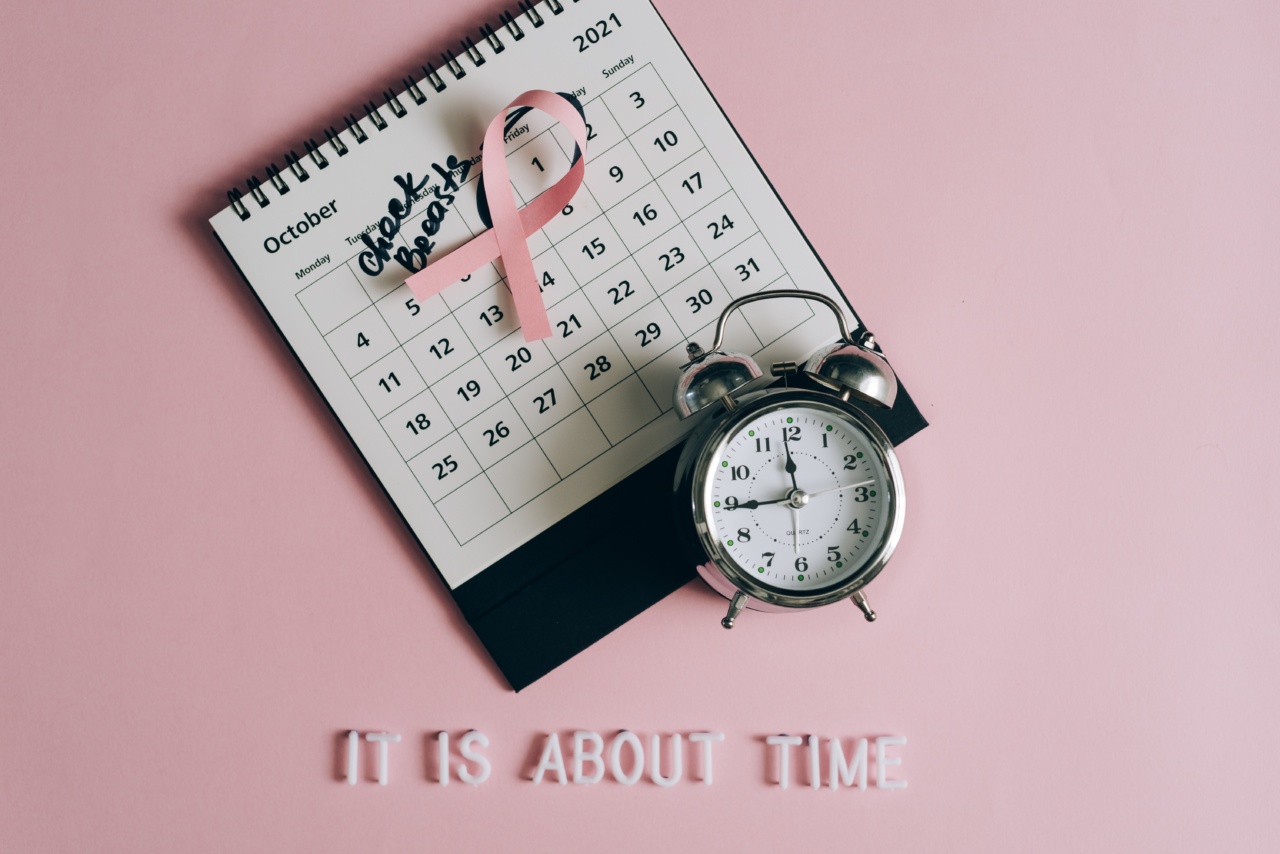According to the World Health Organization (WHO), cancer is one of the leading causes of death worldwide. The thought of developing cancer can be daunting and overwhelming.
While it is not always possible to prevent cancer entirely, there are several lifestyle changes you can make to reduce your likelihood of developing the disease. In fact, studies have shown that implementing certain strategies can significantly decrease the risk of cancer by up to 50%. Here are eight effective ways to lower your chances of developing cancer:.
1. Quit Smoking
Smoking is the leading cause of preventable cancer deaths in the world. It is responsible for approximately 1 in 3 cancer-related deaths. Tobacco smoke contains harmful chemicals that can damage DNA, leading to mutations and the development of cancer.
If you are a smoker, quitting is the best thing you can do to reduce your cancer risk. Within a few years of quitting, your risk of developing various types of cancer diminishes significantly.
2. Maintain a Healthy Weight
Obesity is a risk factor for many types of cancer, including breast, colon, kidney, ovarian, and pancreatic cancer. Excess body weight can cause chronic inflammation and hormonal imbalances, which contribute to the development of cancer.
By maintaining a healthy weight through a balanced diet and regular exercise, you can significantly decrease your risk.
3. Follow a Nutrient-rich Diet
Eating a diet rich in fruits, vegetables, whole grains, and lean proteins can provide your body with essential nutrients and antioxidants necessary to fight cancer.
Include a variety of colorful fruits and vegetables in your meals to ensure you obtain a wide range of vitamins, minerals, and phytochemicals. These compounds have been shown to reduce the risk of certain cancers.
4. Limit Processed and Red Meat Consumption
Processed and red meats have been found to increase the risk of colon and stomach cancer. These meats are often high in saturated fats, cholesterol, and preservatives that can cause inflammation and contribute to the development of cancer.
By minimizing your consumption of processed and red meats and opting for lean protein sources, such as fish, poultry, and plant-based proteins, you can reduce your cancer risk.
5. Protect Your Skin from Harmful UV Rays
Excessive exposure to ultraviolet (UV) radiation from the sun or tanning beds is a major risk factor for skin cancer.
Protect your skin by applying broad-spectrum sunscreen with a high SPF, wearing protective clothing and hats, seeking shade when the sun is strongest, and avoiding indoor tanning. These preventive measures can significantly reduce your chances of developing skin cancer.
6. Get Vaccinated
Certain viruses, such as human papillomavirus (HPV) and hepatitis B and C, can increase the risk of developing specific cancers, including cervical, liver, and some types of oral cancer.
Vaccinations are available to protect against these viruses, reducing your risk of infection and associated cancers. Consult with your healthcare provider to determine which vaccines are recommended for you.
7. Engage in Regular Physical Activity
Regular exercise offers numerous health benefits, including a lowered risk of cancer.
Engaging in moderate-intensity activities like brisk walking, cycling, swimming, or dancing for at least 150 minutes per week can help reduce your likelihood of developing various types of cancer. Exercise not only helps manage weight but also strengthens the immune system, reduces inflammation, and improves hormone regulation.
8. Limit Alcohol Consumption
Excessive alcohol consumption is associated with an increased risk of several types of cancer, including breast, liver, and colorectal cancer.
While moderate alcohol intake may have certain health benefits, it is essential to limit consumption to reduce cancer risk. Women should have no more than one alcoholic drink per day, while men should have no more than two.
By implementing these eight lifestyle changes, you can significantly reduce your likelihood of developing cancer by up to 50%. Remember, small steps towards a healthier lifestyle can have a profound impact on your overall wellbeing.
Prioritize your health and make these positive choices to safeguard yourself against cancer.































